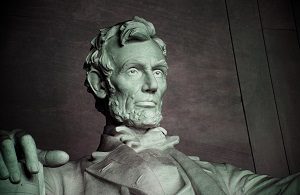4 Types of Government Administrators Who Rule the Leading Countries
 The world that we live in depends on its leaders. They make crucial decisions for the people whom they govern. Although most bodies of people do have leaders, there is a range of differences in their responsibilities and power. The means by which leaders come into power vary greatly. Regardless of their title, the citizens whom the rulers preside over must trust their leaders to make good decisions.
The world that we live in depends on its leaders. They make crucial decisions for the people whom they govern. Although most bodies of people do have leaders, there is a range of differences in their responsibilities and power. The means by which leaders come into power vary greatly. Regardless of their title, the citizens whom the rulers preside over must trust their leaders to make good decisions.
1. Presidents
The president is the leader or head of a state in a republic. In most cases, the president is decided based on a vote by the people of the country. The president has a great deal of power over the people and is responsible for making political and policy decisions. In many countries, systems are in place to prevent the president from abusing his or her power. The system ensures that the president acts in the best interest of the people.
2. Kings and Queens
A system of government that has a king and queen is known as a monarchy. Historically, kings were undisputed decision makers and had unprecedented power to make policy changes. Generally, the citizens of a country had no power to decide who was made king and queen. Often, the title was handed between generations of family members when the preceding ruler died or was no longer able to perform his or her duties. Today, the position ranges in power from merely symbolic to having the absolute control over a country.
3. Dictators
A political leader who holds absolute power over a country is known as a dictator. Dictators are often characterized by their brutal style of government. Unlike other systems, a dictator has the ability to make unquestioned decisions regarding policy, politics, and military. Although they may take advice from those who work beneath them, dictators ultimately make the final decisions. During the last century, the word “dictator” has acquired a negative connotation that often evokes images of brutality and injustice.
4. The Pope
The pope is the highest religious figure in the Catholic church. In history, some popes have had the ability to make political changes in countries around the world. However, in recent centuries, the pope’s political power has dwindled. Although technically the pope is the only head of state within Vatican City, his words and influence spread throughout the world. The pope maintains the highest spiritual authority of any leader in the world. Unlike other leaders, who are elected by citizens or inherit their titles, the pope is chosen by polling cardinals, who are in lesser positions of power in the Catholic church.
In the world we live in, we count on our leaders to make important decisions for our politics and lives. There are many different kinds of leaders in the world, all of whom have different levels of authority and separate means by which they receive power. All leaders have a responsibility to care about the lives of the people they preside over. For better or worse, we live in a world where great power lies in the hands of very few.